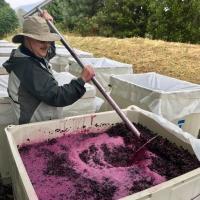-
Welcome to the eG Forums, a service of the eGullet Society for Culinary Arts & Letters. The Society is a 501(c)3 not-for-profit organization dedicated to the advancement of the culinary arts. These advertising-free forums are provided free of charge through donations from Society members. Anyone may read the forums, but to post you must create a free account.
Protected Designations: Protecting Regional Food Names
-
Similar Content
-
- 13 replies
- 2,815 views
-
- 1,056 replies
- 193,691 views
-
- 2,696 replies
- 554,144 views
-
- 145 replies
- 29,960 views
-
Food Songs 1 2 3
By liuzhou,
- 68 replies
- 14,216 views
-
-
Recently Browsing 0 members
- No registered users viewing this page.






Recommended Posts